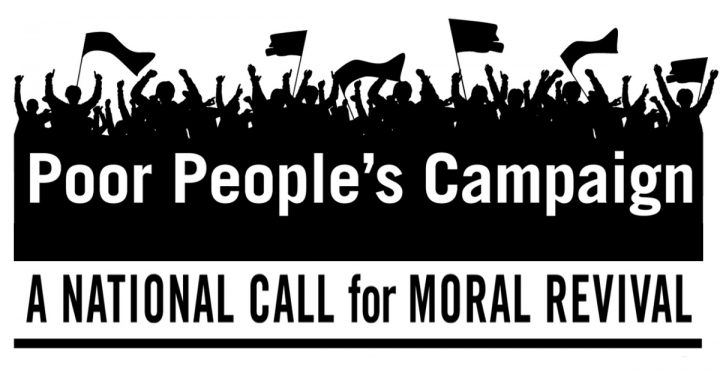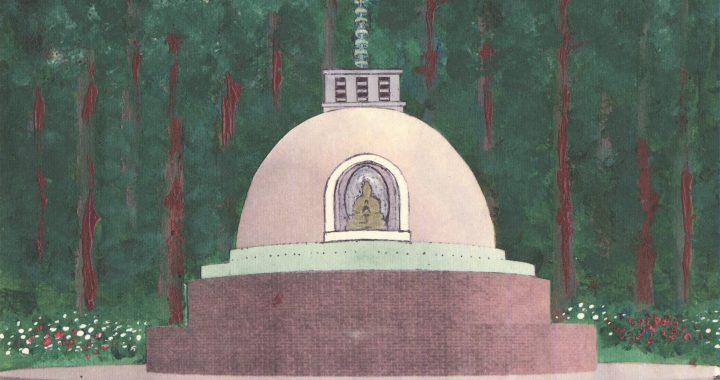Some years ago the Rev. Joe Hale posed the question, “Is it ever possible to make peace by destroying bridges?” He was speaking in reference to Israel’s indiscriminate destruction of Lebanon, but he could have been speaking of any number of foreign policy decisions made by the U.S. government, particularly since September 11, 2001.
The events of that fateful day in 2001 sowed new seeds of fear, anger and hatred, and fueled decisions in the highest levels of government that have made our nation and the world a much more dangerous place. Those seeds have since grown into what is now a destructive, self-perpetuating global War on Terror that drives our nation deeper into Fortress America.
To change course we must start building bridges rather than destroying them. To do so will require that our nation stop threatening other nations with regime change, fulfill our obligations under the Nuclear Non Proliferation Treaty and stop holding the threat of nuclear weapons over other countries, and start using civilian diplomacy rather than military action as a tool of foreign policy. It will also require major shifts in our patterns of energy consumption that have created such a huge reliance on fossil fuels. Our priorities must change dramatically!
But none of this can happen without changing ourselves and how we define and address the evils in our world. Not long after 9/11 and before completing the mission in Afghanistan, President Bush laid out the next stage in his war on terror and announced his plans to confront the infamous “axis of evil,” referring to “rogue” states that threaten the world with weapons of mass destruction (much like the U.S. threatens other nations with nuclear weapons).
Many years before, Reverend Martin Luther King, Jr., spoke of a completely different axis of evil, one of racism, poverty/materialism, and war that mire people in misery, divide people against one another, and threaten the humanity with extinction. 
President Obama took President Bush’s lead in trying to rid the world of evil primarily through military action, and foreign aid/poverty assistance linked to what we determine to be “good” government and “good” economic practices. And now we have a president who, in his clueless narcissism, is bumbling toward violent conflict and nuclear war. Dr. King, on the other hand, believed in addressing racial and cultural tensions, committing unconditionally to free the world of the scourge of poverty, and utilizing nonviolent intervention in international conflicts.
What ultimately sets the two strategies apart are their motivations. The current one is based on fear and hatred, the need for power, and desire for resources; the other on faith and compassion and the quest for justice, which are values shared by the world’s great religions. And beyond the motivations, we have seen the horrible consequences of coercion and violence. We, as people of a common humanity, are called to seek a different approach in which we build bridges instead of destroying them.
As Dr. King once so eloquently stated, “Love is the key that unlocks the door which leads to ultimate reality. We can no longer afford to worship the god of hate or to bow before the altar of retaliation. History is cluttered with the wreckage of nations and individuals who pursued this self-defeating path of hate” (from Where Do We Go From Here. Chaos or Community? C1968).
Yet, we cannot begin to address our violence abroad until we recognize the violence we perpetrate against the poor, the marginalized, those with no voice, right here at home. In “Beyond Vietnam,”Dr. King’s first public anti-war speech, given at New York City’s Riverside Church on April 4, 1967, a year to the day before he was assassinated, he recognized the glaring inequities here at home and how they were tied to our global exploits. Here is an exerpt:
“I am convinced that if we are to get on to the right side of the world revolution, we as a nation must undergo a radical revolution of values. We must rapidly begin [applause], we must rapidly begin the shift from a thing-oriented society to a person-oriented society. When machines and computers, profit motives and property rights, are considered more important than people, the giant triplets of racism, extreme materialism, and militarism are incapable of being conquered.
A true revolution of values will soon cause us to question the fairness and justice of many of our past and present policies. On the one hand we are called to play the Good Samaritan on life’s roadside, but that will be only an initial act. One day we must come to see that the whole Jericho Road must be transformed so that men and women will not be constantly beaten and robbed as they make their journey on life’s highway. True compassion is more than flinging a coin to a beggar. It comes to see than an edifice which produces beggars needs restructuring.
A true revolution of values will soon look uneasily on the glaring contrast of poverty and wealth. With righteous indignation, it will look across the seas and see individual capitalists of the West investing huge sums of money in Asia, Africa, and South America, only to take the profits out with no concern for the social betterment of the countries, and say, “This is not just.” It will look at our alliance with the landed gentry of South America and say, “This is not just.” The Western arrogance of feeling that it has everything to teach others and nothing to learn from them is not just.
A true revolution of values will lay hand on the world order and say of war, “This way of settling differences is not just.” This business of burning human beings with napalm, of filling our nation’s homes with orphans and widows, of injecting poisonous drugs of hate into the veins of peoples normally humane, of sending men home from dark and bloody battlefields physically handicapped and psychologically deranged, cannot be reconciled with wisdom, justice, and love. A nation that continues year after year to spend more money on military defense than on programs of social uplift is approaching spiritual death.
America, the richest and most powerful nation in the world, can well lead the way in this revolution of values. There is nothing except a tragic death wish to prevent us from reordering our priorities so that the pursuit of peace will take precedence over the pursuit of war.”
Dr. King worked to build a Poor People’s Campaign, uniting all working people across racial divisions, to press for fundamental economic changes. Today, 50 years after his death people are moving forward with a renewed and revolutionary Poor People’s Campaign that honors Dr. King’s legacy.
The Poor People’s Campaign: A National Call for Moral Revival is uniting people across the country to challenge the evils of systemic racism, poverty, the war economy, ecological devastation and the nation’s distorted morality. We at Ground Zero Center for Nonviolent Action invite you to take the pledge and join the movement to transform the political, economic and moral structures of our country and complete Dr. King’s unfinished work.
Dr. King gave his life in the struggle for a better world, and his prophetic voice calls us to follow the well-worn path of love and nonviolence, building bridges along the way, and peace both at home and abroad.
As he said, “The Triple Evils of poverty, racism, and war are forms of violence that exist in a vicious cycle. They are interrelated, all-inclusive, and stand as barriers to our living in the ‘Beloved Community.’ When we work to remedy one evil, we affect all evils.”
Let us join together in renewing our commitment to building the Beloved Community!




